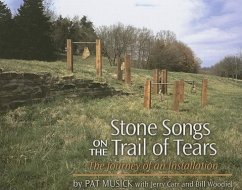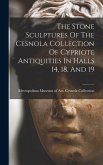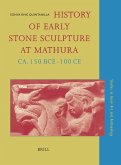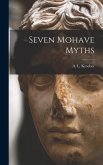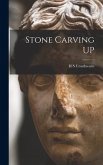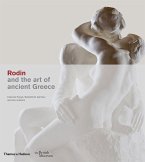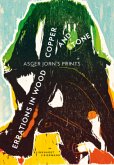In March 2002, artist Pat Musick, her husband, Jerry Carr, and historian Bill Woodiel set out to commemorate a portion of the great and tragic Trail of Tears. On the Trail of Tears, the Cherokees, among other American Indian tribes, were forced to migrate westward, leaving their homelands for the unknown. Following the tradition of Christo, and inspired by installation artist Andy Goldsworthy, Musick and crew created an art installation titled Stone Songs on the Trail of Tears. This book chronicles the journey, with photographs, poetry, maps, journal entries, and introductory essays on art and history. It is an eye-catching piece of art featuring five yokes that combines oak, wood, steel, and native Ozark sandstone, designed to represent the struggle of those who took the brutal journey. The installation traveled to twenty-two stops along the Benge Route across northern Arkansas, the actual route taken by some of the Cherokees in 1838. Musick and her crew moved the installation to each spot along the Trail of Tears; sometimes using the wagon ruts or other physical remains still present to guide their way. Time was spent in each area, meeting locals, setting up, photographing, and moving on, as ephemeral as the Cherokee s journey itself. According to Musick, The project became much more than any of us expected. About the second day the sculpture took on a life of its own, and we viewed it as moving through the trail sites. Each of us experienced poignant identification with the tragic history of the People. We felt that Nunahi-Duna-Dlo-Hilu-I, the place where they cried had changed our lives forever. Each photograph is accompanied by a poem written by Musick in the voice of a young Cherokee mother making the journey. Stone Songs on the Trail of Tears: The Journey of an Installation is a beautiful and powerful portrayal of the strength, courage, and perseverance of the Cherokee people. It is more than just a book; it has become a documentary piece of history. Donald Harington, noted author and University of Arkansas professor of fine arts, contributes an introductory essay, as do historian Bill Woodiel and Jack Baker, president of the National Trail of Tears Association. From the introductory essay by Donald Harington to Stone Songs on the Trail of Tears: Sculpture is usually thought of as fixed, stationary, monumental. But Pat Musick s refuses to remain stationary. It moves. It moves not alone through the landscape of Arkansas, but through the uncharted dreamscapes of our mind. "
Hinweis: Dieser Artikel kann nur an eine deutsche Lieferadresse ausgeliefert werden.
Hinweis: Dieser Artikel kann nur an eine deutsche Lieferadresse ausgeliefert werden.

